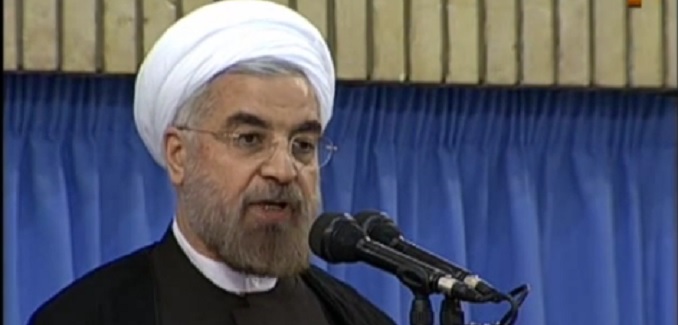Reuters on Thursday reported that efforts by the U.N.’s nuclear watchdog (IAEA) to clarify issues surrounding the so-called possible military dimensions (PMD) of Iran’s atomic program had – per the outlet’s headline – shown “no sign of breakthrough,” even as the May 15th deadline by which Iran was to have implemented seven transparency measures expired. Iran is bound by United Nations Security Council (UNSC) resolution 1929 to provide the IAEA with transparency into a range of suspected weapons-related research, and analysts have long emphasized that meeting those obligations is necessary to ensure the verifiability of any nuclear agreement.
Western negotiators had declined to address the PMD issue when inking the interim Joint Plan of Action (JPA), but Obama administration officials had responded to subsequent criticism by assuring lawmakers and the public that Tehran would be forced to meet its obligations in the context of comprehensive negotiations. The Thursday Reuters report revealed that Iranian negotiators had outright “ignored” an American request “to discuss the PMD issue,” despite public U.S. declarations that “every issue” related to Iran’s atomic program would be addressed.
The U.N. nuclear watchdog declined to say whether Iran had met a deadline on Thursday for starting to address suspicions it may have carried out atomic weapons research, adding to signs of limited progress so far. Under a cooperation pact agreed between the two sides in November, Iran was to implement seven transparency steps by May 15 to help allay international concern about its disputed nuclear program…How Iran responds to questions about so-called Explosive Bridge Wire detonators is seen as a litmus test of its readiness to begin cooperating with a long-stonewalled investigation into what the Vienna-based U.N. body calls the possible military dimensions (PMD) of the country’s nuclear program…U.S. officials say it is central for Iran to resolve IAEA concerns for a successful outcome of the broader diplomacy. But Iranian denials of any atomic bomb aspirations will make it difficult for Tehran to admit to any illicit work in the past.
Analysts have in recent days emphasized that the PMD issue – in addition to being a critical test for the robustness of any deal – has become a test of whether Washington’s credibility in negotiating with the Islamic Republic. David Albright and Bruno Tertrais – respectively the president of the U.S.-based Institute of Science and International Security and a senior Research Fellow at the Fondation pour la Recherche Strategique (FRS) – on Wednesday tersely asked in the pages of the Wall Street Journal “what is the point of striking an agreement with Iran if Tehran will be able to hide its weapons work?”
[Photo: iranianpolitics1 / YouTube]




